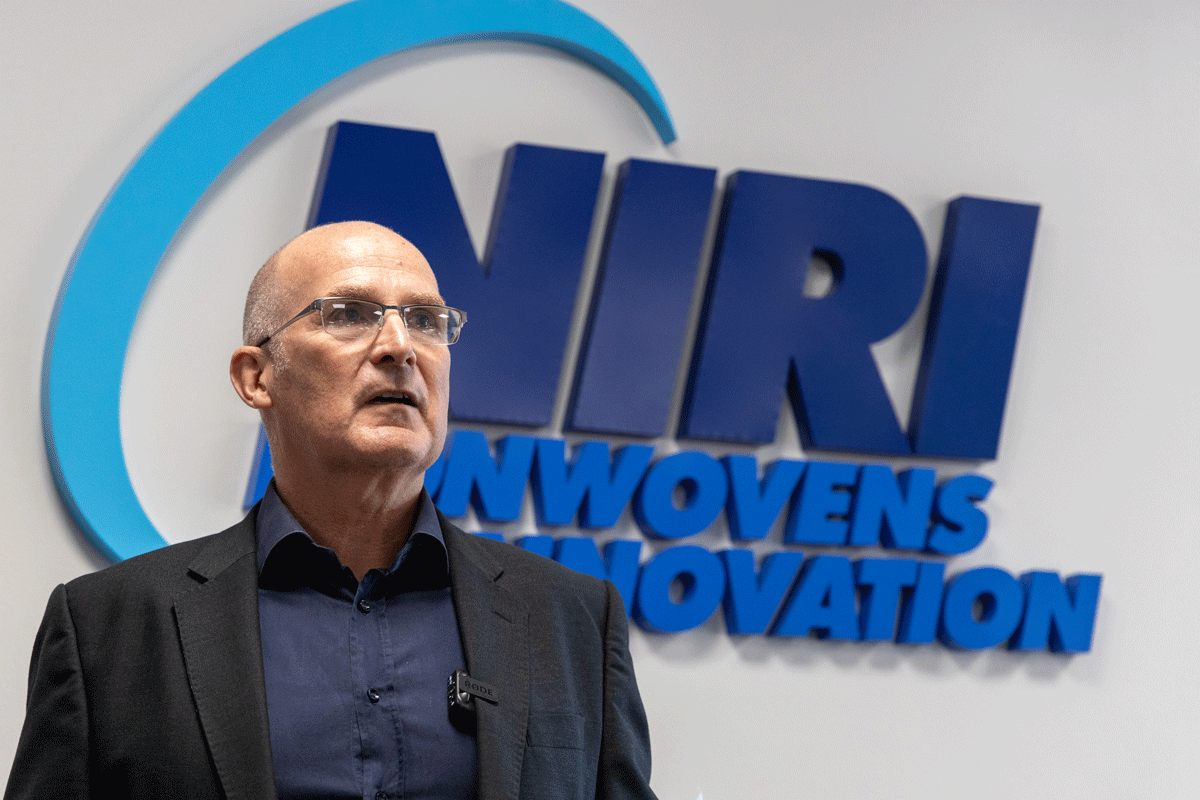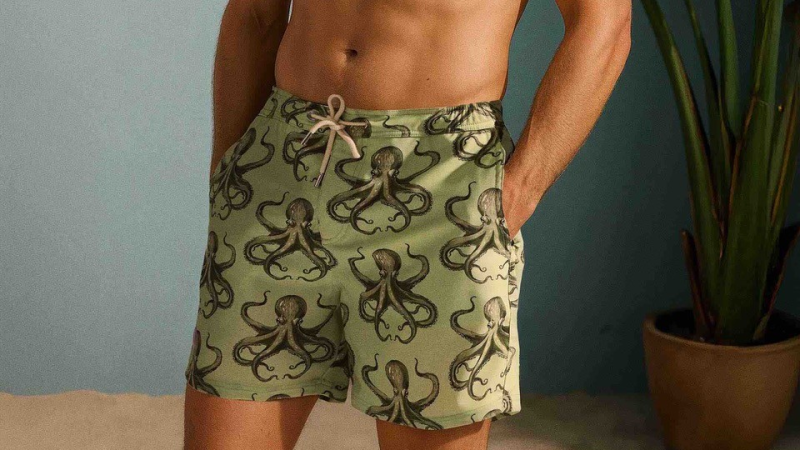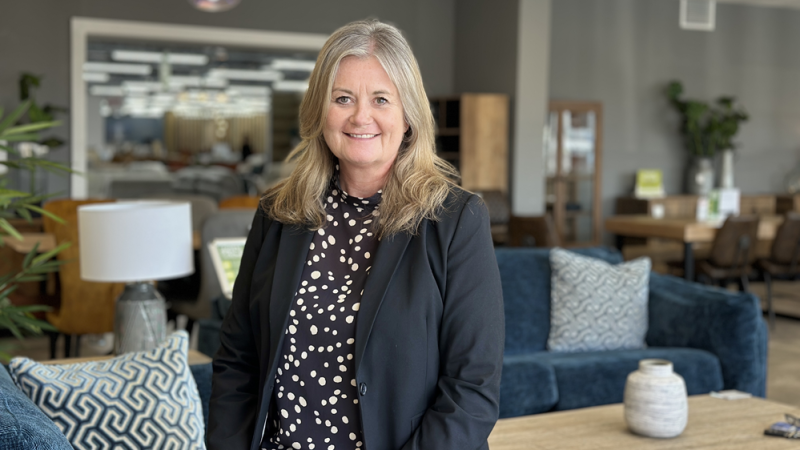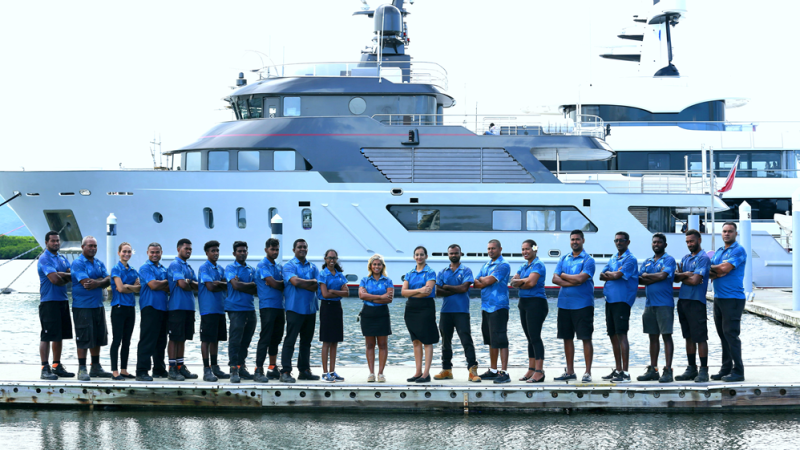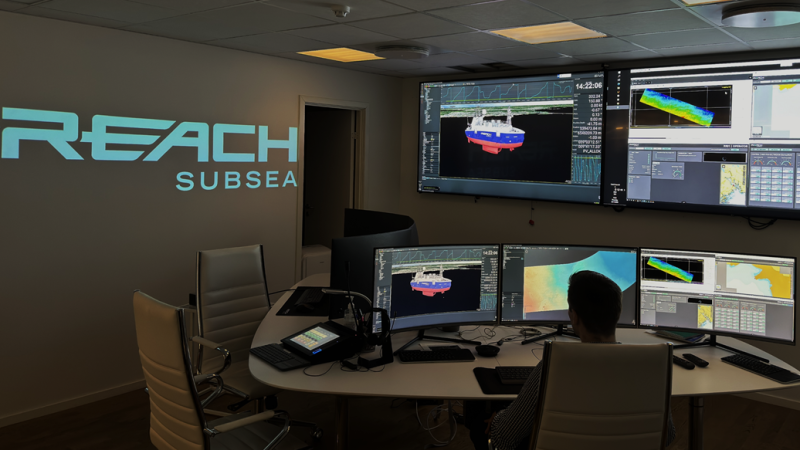In every facet of daily life, nonwoven materials play an integral, albeit often hidden role in the world around us. When you get into your car, the seat filling is nonwoven, as are the roof liner and the brake pads. In hospital, the wound dressing you are given is nonwoven and the medical staff who treat you will be wearing nonwoven garments and masks. Even the teabag you use every morning is nonwoven. Everything from nappies to absorbency garments for the elderly is nonwoven, meaning that they are literally with you from cradle to old age. In technical terms, nonwovens are fibrous materials processed into bonded webs rather than formed by weaving or knitting yarns. NIRI is proud to be the world leader in nonwoven and fibre innovation and product development. At the helm of this global leading consultancy is Chris Fowler, Founder and Group Managing Director, who has a proven 30-year record of commercialising innovative products.
“We have a team of 40 technical textile scientists recruited from all around the world, including France, Italy, Syria, Iran, and Zimbabwe,” says Fowler, “On our team, we have over 450 years of combined experience with a mix of high academic excellence and strong industrial experience. This means we can help our clients to develop new, innovative products and enhance their existing products.”
While NIRI is at the cutting edge of the sector, Fowler is also proud of the long history it inherits as a British-based textile company.
“We are very proud to be continuing a strong technical textile heritage that has been here in the UK for over 150 years,” Fowler says. “We like to think that we are continuing that strong heritage of textile innovation and delivering it on a global scale.”
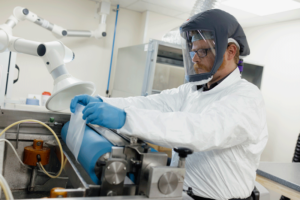 This market-leading position has also placed NIRI at the forefront of the push for sustainability.
This market-leading position has also placed NIRI at the forefront of the push for sustainability.
“Most of our projects now have a large element of sustainability,” says Fowler. “Over 90% of our projects are focused on improving sustainability by reducing reliance on plastics, improving biodegradability, compostability, and dispersibility. In addition to this, we help companies increase the end-of-life use of their products and enable these materials to truly enter the circular economy.”
At a time when many companies are looking for ways to move away from single-use, petrochemical-derived plastics, NIRI is a valuable ally, helping companies switch to plastic-free products or use organic bio-based polymers such as polyhydroxyalkanoates (PHAs) which are more biodegradable and safer for marine life. PHAs are derived from microorganisms and bacterial fermentation. These materials can potentially replace fossil-fuel-based materials, but any sustainability advantages they bring to the table will be wasted if they cannot also compete on a performance and cost efficiency level.
“We concentrate heavily on trying to maintain the performance characteristics of the sustainable materials we develop,” Fowler emphasises. “It’s all very well replacing existing plastic products with more sustainable alternatives, but we need to ensure we can match them on a performance level. Our technical textile scientists and chemists are making great steps in achieving that goal.”
Targeted Expertise
Fowler, who has held leadership roles in multiple multinational organisations, is quick to point out the importance of NIRI’s technical textile scientists and chemists in its achievements as he sees the expertise of the company’s staff as a key competitive edge.
“It all comes down to people,” he says. “I’ll share what the CEO of a FTS100 company said about us. They said NIRI ‘has the abilities and facilities we don’t possess, enabling us to commercialise products faster’. NIRI has 40 textile scientists and chemists who are leaders in their fields, and we invest heavily in skills development and training. This allows us to recruit and retain the best people to help our clients develop impactful market-leading products.”
NIRI’s team and facilities possess all the major nonwoven processing capabilities, with a full suite of analytical methods available across its eight laboratories.
“We have the experience and expertise to fully understand a client’s requirements. We are problem solvers at the end of the day,” Fowler says. “We can find solutions to problems, whether the client wishes to make a product perform better and/or be more sustainable. “We are able to prototype products, test them in a wide variety of ways and then improve the prototype through a process of iterative development that creates a product the client can successfully and profitably commercialise.”
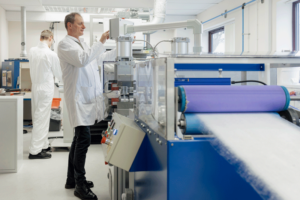 The crux of most of those challenges is finding the best of both worlds in terms of sustainability and performance.
The crux of most of those challenges is finding the best of both worlds in terms of sustainability and performance.
“We are trying to develop sustainable products that still retain the performance characteristics everyone has become accustomed to, such as durability and strength,” explains Fowler. “It is a challenge we are embracing to ensure our products have the characteristics consumers have come to expect while being better for the planet.”
If that goal sounds unattainable, the truth is that NIRI has already attained it, many times. NIRI has helped 400 companies develop over 850 products. While Fowler is not at liberty to talk about most of those products, due to client confidentiality clauses, he is able to share with us the work NIRI has done for the Bill & Melinda Gates Foundation, helping to eradicate malaria by developing insecticidal mosquito nets.
NIRI has also helped the Ministry of Defence protect soldiers by developing lighter-weight ballistic protection and has worked with leading healthcare companies to develop better wound dressings.
The company has developed a sustainable thread for clothing, mattresses and car seating that is very functional during the life of the product but can be disintegrated at the end of its life when exposed to low-powered microwave energy, allowing the rest of the fabric to be disassembled quickly and cheaply for recycling.
One project Fowler is particularly proud of is the development of a blood filter for the NHS to remove the need for cross-matching of blood transfusions.
“We developed a blood filter and functionalised it further by attaching bespoke synthesised chemistry to the filter substrate that enabled the targeting and capture of antibodies A and B,” Fowler explains. “This removed enough antibodies from the plasma, leaving a universal plasma which can be transfused to anyone. From a safety perspective, it avoids the dangers of potentially lethal mismatched blood transfusions, and makes administration, storage, and delivery of blood easier and more cost-effective.”
NIRI is also actively looking at carbon capture, trying to produce a commercially viable, nonwoven carbon capture technology.
It all comes down to the unique properties that nonwovens can offer compared to other materials.
“Nonwovens are excellent at controlling a specific performance characteristic in a product,” Fowler highlights. “In a wound dressing, for instance, we can control the transport of the exudate away from the wound through the dressing to the top surface layer, where it evaporates. This means the wound heals faster, so it needs reduced dressing changes, saving the NHS time and money. We can engineer added functionality into many products across many sectors.”
NIRI has also developed technology that can capture and filter out viruses such as Covid-19.
It is a technology with a lot of promise, and Fowler intends to live up to that promise. NIRI has just moved to a new facility in Leeds and is about to start looking for investment with a suitable like-minded funding partner.
“One of the areas we are looking to invest in is our advanced materials division, particularly recruiting more specialist chemists and material engineers,” Fowler says. “It will allow us to apply specialist chemistry to nonwoven materials, thereby adding more functionality to create new innovative products. We also wish to expand our territory presence, potentially setting up new facilities in markets such as the US, and opening a central European facility, by acquiring complementary organisations.”
